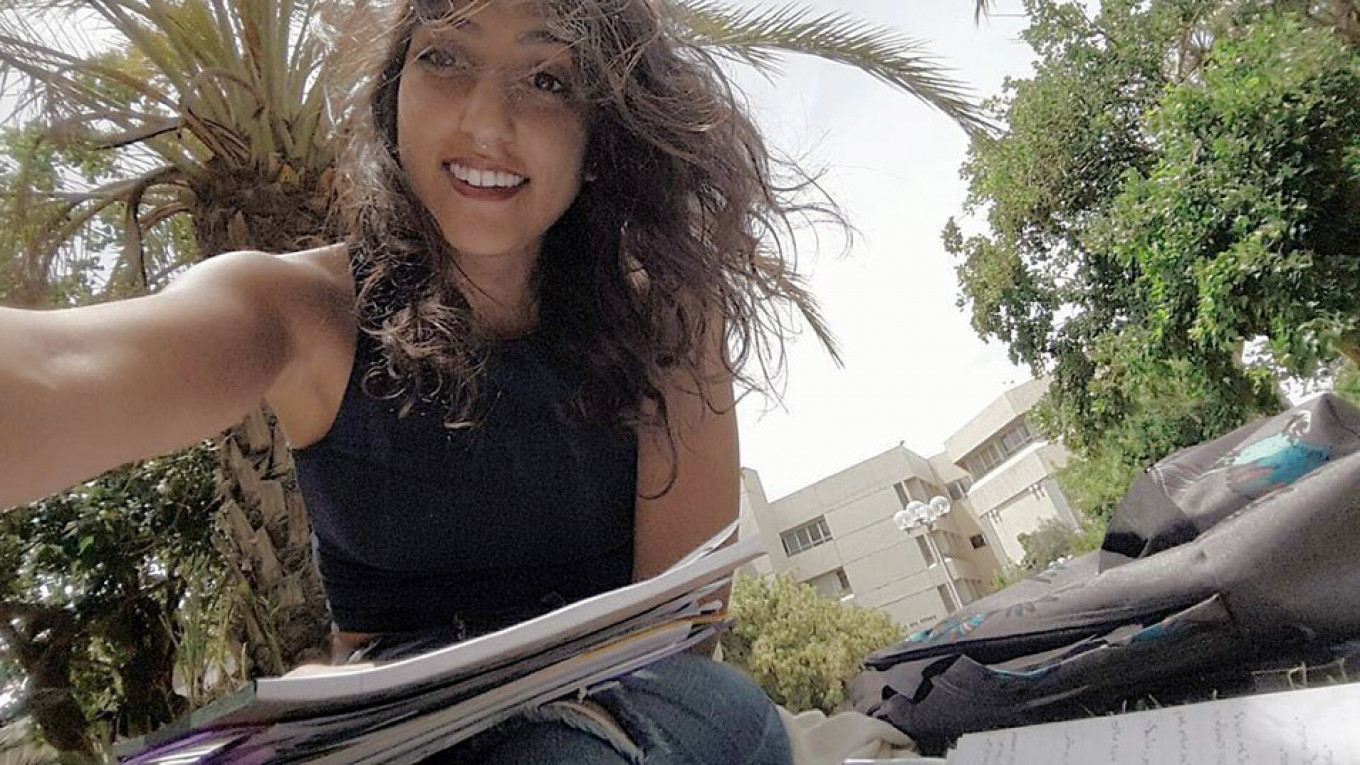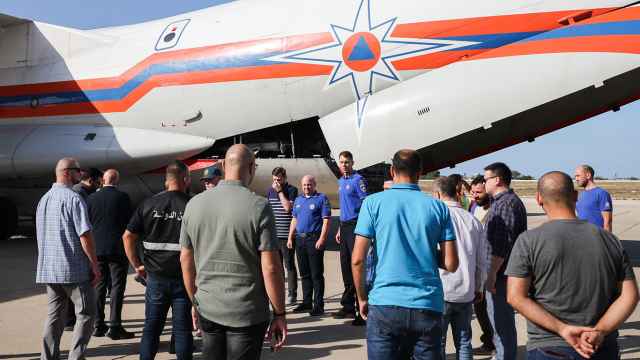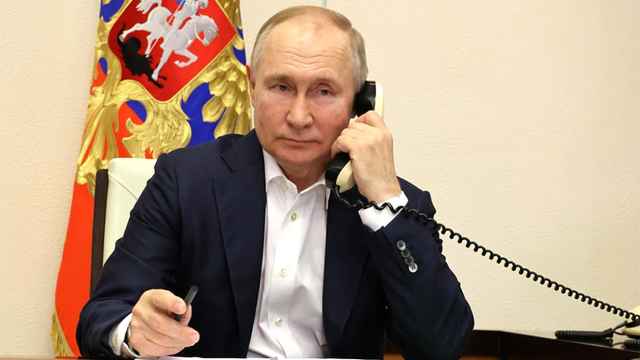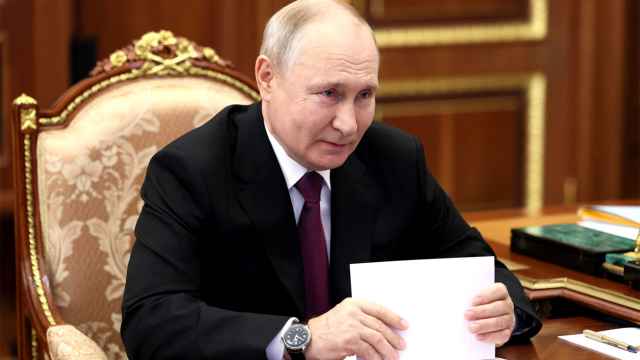Vladimir Putin never misses a chance to pounce on perceived geopolitical weakness, even when doing so might contribute to the downfall — and potential incarceration — of an old acquaintance like Benjamin Netanyahu.
The Russian leader has snubbed repeated requests from his embattled Israeli counterpart to free Naama Issachar, a 26-year-old army veteran sentenced to 7 1/2 years in jail for carrying a small amount of hashish in a Moscow airport during a layover in April. She was flying back to Tel Aviv from New Delhi after a backpacking trip to India that included a course in yoga.
Issachar’s plight has become a cause célèbre in Israel, where Netanyahu is struggling to extend his record 13 years of rule and avoid a trial on corruption charges. He failed to build a majority coalition after elections in September ended in deadlock and now his centrist rival, Benny Gantz, has until the end of this month to try to forge a government of his own.
Putin could have provided his frequent interlocutor a boost in the polls just days before the vote, when support for his Likud party started to wane and Netanyahu flew to Putin’s summer residence in Sochi to press for Issachar’s release. At the time, Likud’s headquarters in Tel Aviv boasted a giant banner of the two men shaking hands under the slogan, “Netanyahu, in another league.”
Instead, with disputes regarding Syria and Iran simmering amid tensions over U.S. President Donald Trump’s policies in the region, Putin sent Netanyahu home empty-handed after reportedly making him wait three hours. A month later, a Moscow court meted out the unprecedented punishment to Issachar, a dual U.S. citizen who was raised in New Jersey.
This was an insult, done “on purpose and artificially for political reasons,” said Zvi Magen, a former Israeli ambassador to Russia who’s now a senior researcher at Tel Aviv University. Two people with knowledge of internal Kremlin deliberations said Putin himself will decide Issachar’s fate, but only after the stalemate in Israel is broken, which may require another election in January. Putin doesn’t want to give Netanyahu “a gift” while he’s in political limbo, one of these people said.
Andrei Kortunov, director general of the Russian International Affairs Council, a Kremlin-founded think tank, called the Sochi rebuff “a deliberate move” to signal Putin’s “cooling” toward Netanyahu.
“Putin is hedging,” said Cliff Kupchan, chairman of risk consultancy Eurasia Group. “Netanyahu is on thin ice and Putin wants to keep his options open. His personal relationship with Bibi is no longer a political asset.”
For Issachar, Russian reality has become a nightmare more frightening than the two years she spent as a desert sniper protecting her country’s frontier from Islamic militants. Not long after the detention, Issachar’s mother Yaffa Issachar said her daughter found herself in the middle of a murky world of global-rivalry intrigue reminiscent of the Cold War.
At first, Issachar’s Russian lawyer expected her to be released with a financial slap on the wrist and time served. An American student detained this year in St. Petersburg with a larger amount of cannabis got off with the equivalent of a $230 fine.
But soon after Issachar’s arrest, Russian prosecutors inexplicably sent the case back to police for further investigation. By late June, they’d added the far more serious charge of smuggling.
Then in August, as Issachar’s trial date approached, Yaffa said she started getting WhatsApp messages from someone who claimed to be a friend of a Russian national, Alexei Burkov, 29, who’s been fighting extradition from Israel to the U.S. to face charges including hacking and credit-card fraud since 2015.
The man, a Ukrainian-born Israeli named Konstantin Bekenshtein, seemed to know a lot about Issachar’s predicament and wanted Yaffa to work with him to try to arrange a prisoner swap so both Naama and Alexei could return to their respective countries. Yaffa said she didn’t accept because she didn’t want to be dragged into a game she didn’t understand.
In an email seen by Bloomberg, Bekenshtein told Yaffa on Oct. 10, a day before her daughter’s sentencing, that she’d likely receive between five and seven years. Once again, he offered to combine forces.
“Alexei and Naama are both victims of political games,” Bekenshtein said in an email exchange with Bloomberg.
Only after Issachar’s penalty was announced did it emerge in the media that Russia had been pushing an Issachar-for-Burkov trade the whole time. Natan Sharansky, 71, a Soviet-born former dissident and Israeli politician who spent nine years in communist prisons, said Issachar is simply a “hostage.”
“At a very high level, the Russians explained very clearly to the Israeli side: ‘You’ll give us our guy and we’ll give you your girl,’” Sharansky said.
Putin’s spokesman, Dmitry Peskov, didn’t respond to a request for comment on the Issachar case, and neither did Netanyahu’s office nor the U.S. State Department. Peskov earlier told state-run RT TV that Russia is considering official Israeli requests for clemency, without elaborating.
With a swap now off the table — Burkov’s extradition to the U.S. is imminent following approvals from both Israel’s top court and its justice minister — Yaffa is battling to free Naama from Moscow, where she’s renting an apartment with money raised through a social media campaign organized by family members in the U.S. and Israel.
Issachar has only been allowed two phone calls, hasn’t seen sunlight in seven months and fears she’ll spend years behind Russian bars, according to her mother. Issachar’s Russian lawyer has already filed an appeal, which a court usually hears within three months of a verdict. If denied, she’ll be transferred to a penal colony, possibly in a remote location.
“I beg President Putin to let her go home because she’s a happy person,” Yaffa said in an interview in the Russian lawyer’s office, tears filling her eyes. “Every day in prison is injuring her soul.”
Putin’s ties with Netanyahu have frayed over repeated Israeli air raids into neighboring Syria, according to two Western diplomats in Moscow. Russia and Iran have helped President Bashar al-Assad’s forces regain control of most his country during a grueling civil war.
The Defense Ministry in Moscow last year blamed Israel for Syria’s accidental downing of a Russian aircraft, killing 15 airmen, while retaliating against Israeli strikes on Iranian assets. Putin later sought to ease tensions over the incident by calling it “a chain of tragic coincidences.”
Netanyahu has also frustrated Putin by using his ties to Trump to ratchet up pressure on Iran, Israel’s sworn enemy, the diplomats said. The Israeli premier, for example, has stridently objected to Trump's stated willingness to meet with Iranian President Hassan Rouhani.
As a result of all this, Issachar has found herself in the middle of a geopolitical “triangle” between Israel, Russia and the U.S., according to Yitzhak Brudy, a political scientist at Hebrew University in Jerusalem.
“As much as Bibi is afraid of Putin, he is more afraid of Trump,” Brudy said.
Netanyahu has repeatedly vowed to never give up on Naama, even taking her photograph with him to Sochi, according to Yaffa. She said he’s spoken to her on three occasions, the last time in person in Israel in October.
“He hugged me and said: ‘Tell her I am going to take her out,’” Yaffa said.
Naama may not have to wait too long. Putin is scheduled to be Israel’s guest of honor at a ceremony in Jerusalem on Jan. 27 marking the 75th anniversary of the liberation of Auschwitz by the Red Army.
A Message from The Moscow Times:
Dear readers,
We are facing unprecedented challenges. Russia's Prosecutor General's Office has designated The Moscow Times as an "undesirable" organization, criminalizing our work and putting our staff at risk of prosecution. This follows our earlier unjust labeling as a "foreign agent."
These actions are direct attempts to silence independent journalism in Russia. The authorities claim our work "discredits the decisions of the Russian leadership." We see things differently: we strive to provide accurate, unbiased reporting on Russia.
We, the journalists of The Moscow Times, refuse to be silenced. But to continue our work, we need your help.
Your support, no matter how small, makes a world of difference. If you can, please support us monthly starting from just $2. It's quick to set up, and every contribution makes a significant impact.
By supporting The Moscow Times, you're defending open, independent journalism in the face of repression. Thank you for standing with us.
Remind me later.






